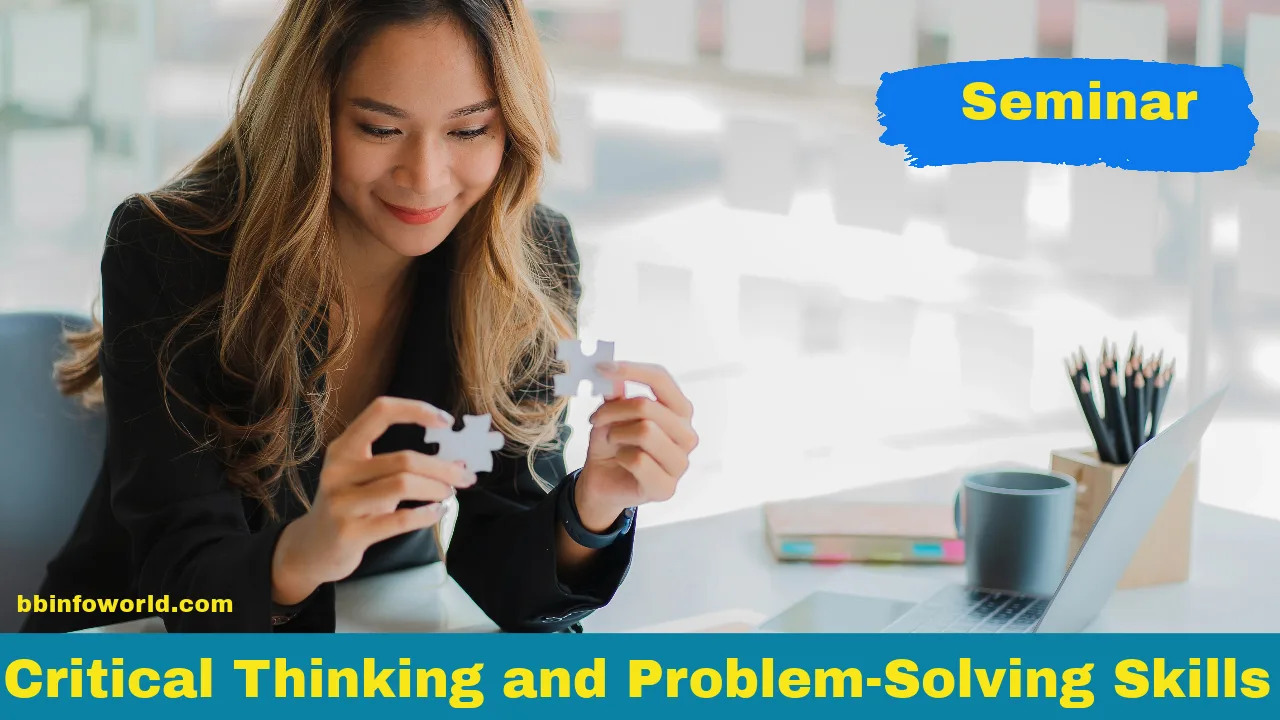
Critical Thinking and Problem-Solving Skills
Develop your critical thinking abilities by analyzing complex situations, making informed decisions, and solving problems creatively.
Critical Thinking and Problem-Solving Skills:
Critical thinking and problem-solving skills are essential abilities that empower individuals to analyze situations, evaluate information, and arrive at well-reasoned decisions. These skills enable individuals to navigate complex challenges, make informed choices, and find innovative solutions to a wide range of problems. Let’s break down these concepts:
Critical Thinking:
Critical thinking involves the careful examination of ideas, information, and situations before forming judgments or making decisions. It’s about approaching issues with an open and skeptical mindset, questioning assumptions, and evaluating evidence. Critical thinkers are not swayed by biases or emotions; instead, they rely on logic, evidence, and careful analysis to reach conclusions.
Key Aspects of Critical Thinking:
- Analysis: Break down complex information into smaller parts to understand its components.
- Evaluation: Assess the quality and credibility of information and sources.
- Inference: Draw logical conclusions based on available evidence.
- Problem-Solving: Develop effective strategies for addressing challenges and making decisions.
- Creativity: Think outside the box and consider unconventional approaches.
Problem-Solving Skills:
Problem-solving skills encompass the ability to tackle real-world issues systematically and efficiently. Effective problem solvers can identify the root causes of problems, generate multiple solutions, and select the most suitable one. Problem-solving involves both analytical thinking and creativity, as well as the capacity to adapt strategies based on changing circumstances.
Key Steps in Problem-Solving:
- Define the Problem: Clearly understand the issue and its underlying causes.
- Generate Solutions: Brainstorm various potential solutions.
- Evaluate Options: Assess the pros and cons of each solution.
- Select a Solution: Choose the best solution based on analysis and judgment.
- Implement the Solution: Put the chosen solution into action.
- Monitor and Evaluate: Continuously assess the effectiveness of the solution and make adjustments if needed.
Importance:
Developing critical thinking and problem-solving skills is vital in various aspects of life:
- Academic Success: These skills are essential for understanding complex subjects and excelling in coursework.
- Professional Growth: Employers value employees who can analyze situations, make decisions, and innovate.
- Effective Communication: Critical thinkers can communicate ideas clearly and back them up with evidence.
- Decision-Making: Well-reasoned decisions lead to better outcomes and minimize risks.
- Innovation: Creativity and critical thinking drive the development of new ideas and solutions.
Developing the Skills:
Improving critical thinking and problem-solving skills involves practice and conscious effort. Engage in activities that challenge your thinking, such as debates, puzzles, and real-world scenarios. Seek diverse perspectives and gather information from various sources to make informed judgments. Continuously refine your problem-solving process by reflecting on past decisions and outcomes.
Conclusion:
Enhancing critical thinking and problem-solving skills equips individuals with the tools to navigate the complexities of life effectively. These skills enable sound decision-making, innovative problem-solving, and the ability to adapt to an ever-changing world. By developing these skills, individuals become better equipped to succeed academically, professionally, and personally.



